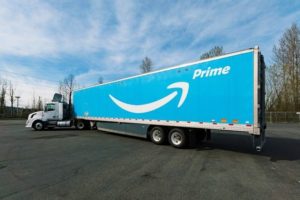The last several years have been a source of both great challenges and triumphs for MercadoLibre (NASDAQ: MELI), the Latin American e-commerce leader. The company has dealt with political instability, hyperinflation, and currency devaluation in some of its key markets, but has continued to grow in spite of these setbacks.
Even in the face of competition from a growing number of entrants into the online marketplace, MercadoLibre has thrived. Its revenue grew more than 65% over the course of 2017, and its stock price doubled.
With the white whale of e-commerce entering the market, is all that about to change?

How will MercadoLibre counter Amazon? Image source: MercadoLibre.
The Amazon is in Brazil, after all…
Amazon.com (NASDAQ: AMZN), the global leader in e-commerce, has been in meetings with a number of manufacturers as it ramps up plans to warehouse and sell a wide array of products in Brazil, according to a report by Reuters. The company wants to sell everything from perfume to consumer electronics in Latin America’s largest retail market. Amazon will also be deploying its own call centers and transportation assets in Brazil, according to the report.
Until now, Amazon has proceeded cautiously with its entry into Brazil’s online arena due to the complexity and unique attributes of the local market. Amazon first began selling e-books in the country in 2012, gradually introducing physical books later on. More recently, the platform has acted as a conduit for third-party sales of consumer electronics.
I heard a rumor
Rumors regarding Amazon’s imminent entry into the Brazilian e-commerce market have been around for years, but those stories have been escalating recently. In June last year, Brazilian newspaper Valor Economico reported that Amazon was in the process of setting up expanded operations in the South American country, after only selling books. While negotiations were still underway at the time, the push would reportedly add electronics, clothing, and furniture.
Those stories surfaced again in October, saying that Amazon’s ramped-up operations in the country were imminent. Reports that Amazon was renting a 50,000-square-meter warehouse near Sao Paulo, Brazil’s most populous city, seemed to confirm these rumors.

Where there’s smoke, there’s fire
These rumors aren’t anything new and, if true, shouldn’t be all that surprising. Latin America is a rich and quickly growing e-commerce market, which MercadoLibre has capitalized on for years. The combination of a growing middle class and expanding internet penetration provides a potentially lucrative market in a region where online sales still account for less than 4% of all retail.
MercadoLibre’s rise to the top of the e-commerce heap in the area has been the result of more than just online sales. The company has brought a unique perspective to the market, developing a payment system — MercadoPago — in a region where many consumers don’t have credit cards or even a checking account.
That initiative was so successful, it has since been expanded beyond the company’s e-commerce platform to other online marketplaces, and is now seeing rapid adoption by brick-and-mortar retailers. MercadoLibre has also debuted its own highly successful shipping solution, and provides a platform used by other online sellers, also handling sellers’ payments and shipping needs.
The company has also been rolling out free and low-cost shipping across its largest markets, in a move that seems designed to counter the Amazon threat.
What does MercadoLibre think?
Analysts have raised the issue with MercadoLibre’s management in previous earnings conference calls. The company sees this as an opportunity to improve on behalf of its customers and to learn from the competition:
We competed over the last 18 years. It’s … something we’ve enjoyed doing and comes as a consequence of operating in a large and attractive market. And our approach to competition, I think, has always been the same, which is, we think of our consumers, we built back from them and we see how we can innovate on their behalf … It’s good for our consumers and it leads our execution to get increasingly better. And I think the consequence of this approach over the years and until this time is that we’ve done incredibly well, and that’s how we’ll continue to look at competition in the competitive environment.
What do I think?
I am watching these developments with great interest, as Amazon and MercadoLibre are my second- and third-largest investments, respectively. I don’t think it’s a zero-sum game, and there will likely be more than one winner in the e-commerce arena.
I believe that MercadoLibre has made all the right moves to prepare for the coming of its biggest competitor.


